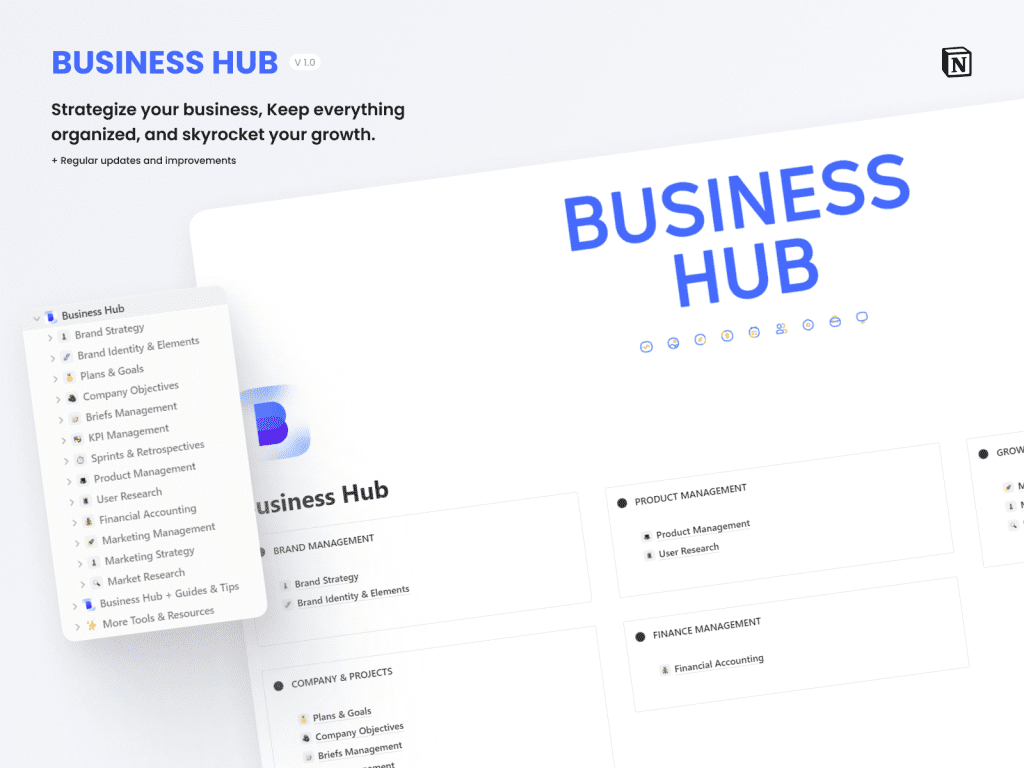Top Business Tools Every Entrepreneur Should Know

Business Tools Every Entrepreneur Should Know. As an entrepreneur, leveraging the right business tools can significantly streamline operations, enhance productivity, and drive success. In the digital age, there is an abundance of tools available to help entrepreneurs manage various aspects of their business efficiently. Here are some top business tools that every entrepreneur should consider incorporating into their workflow:
1. Project Management Tools
Effective project management is crucial for organizing tasks, tracking progress, and ensuring timely project completion. Tools like Asana, Trello, and Monday.com offer intuitive interfaces for managing projects, assigning tasks to team members, and setting deadlines.
2. Communication and Collaboration Tools
Seamless communication and collaboration are essential for a cohesive and productive team. Slack, Microsoft Teams, and Google Workspace (formerly G Suite) provide real-time messaging, file sharing, and video conferencing capabilities.
3. Accounting Software
Managing finances is a critical aspect of running a successful business. Accounting software such as QuickBooks and Xero helps entrepreneurs track expenses, create invoices, manage payroll, and generate financial reports.
4. Customer Relationship Management (CRM) Software
A CRM system like Salesforce or HubSpot allows entrepreneurs to centralize customer data, track interactions, manage leads, and nurture customer relationships for improved customer satisfaction and retention.
5. Email Marketing Platforms
Email marketing remains a powerful tool for engaging with customers and driving sales. Platforms like Mailchimp, Constant Contact, and ConvertKit enable entrepreneurs to create and automate email campaigns.
6. Social Media Management Tools
Maintaining a strong social media presence is essential for brand visibility and customer engagement. Social media management tools like Hootsuite and Buffer help schedule posts, monitor mentions, and analyze performance metrics.
7. Analytics and Data Insights Tools
Data-driven decisions are fundamental to business success. Tools like Google Analytics and Mixpanel provide valuable insights into website traffic, user behavior, and other key performance indicators.
8. E-commerce Platforms
For entrepreneurs selling products online, e-commerce platforms like Shopify and WooCommerce offer user-friendly solutions for building and managing online stores.
9. File Storage and Sharing
Cloud storage services like Dropbox and Google Drive enable entrepreneurs to securely store and share files with team members and clients.
10. Video Conferencing Tools
In the era of remote work, video conferencing tools like Zoom and Microsoft Teams facilitate virtual meetings, webinars, and online collaboration.
11. Customer Support Software
To provide excellent customer service, entrepreneurs can use customer support tools like Zendesk or Freshdesk to manage support tickets and resolve inquiries efficiently.
12. Time Management Apps
Entrepreneurs can enhance productivity and time management with apps like RescueTime or Toggl that track time spent on tasks and help identify areas for improvement.
13. Design and Creativity Tools
Creating visually appealing content is vital for branding. Design tools like Adobe Creative Cloud and Canva enable entrepreneurs to craft professional graphics, logos, and marketing materials.
14. Human Resources Software
For managing employees and HR processes, entrepreneurs can utilize HR software such as BambooHR or Gusto to streamline tasks like onboarding, payroll, and performance reviews.
15. Task Automation Tools
Automating repetitive tasks can save time and increase efficiency. Tools like Zapier and IFTTT allow entrepreneurs to connect apps and automate workflows.
16. Website Builders
For entrepreneurs without coding experience, website builders like Wix and Squarespace provide user-friendly interfaces to create and customize professional websites.
17. Password Managers
Keeping sensitive information secure is essential. Password managers like LastPass and Dashlane help entrepreneurs store and manage passwords securely.
18. Virtual Assistant Services
Entrepreneurs can outsource tasks and administrative work to virtual assistant services like Fancy Hands or TaskBullet to free up time for more strategic endeavors.
19. Online Survey Tools
Conducting market research and gathering customer feedback is made easy with online survey tools like SurveyMonkey or Typeform.
20. Language Translation Services
For businesses operating globally, language translation services like Google Translate or One Hour Translation assist in bridging language barriers.
Conclusion
By leveraging these top business tools, entrepreneurs can optimize their workflows, enhance productivity, and make data-driven decisions that drive their businesses forward. Choosing the right combination of tools tailored to the specific needs of their business can empower entrepreneurs to focus on growth and innovation while maintaining efficiency and organization.
Business Hub for Notion
Your Business Hub, ENTIRELY in Notion. Tired of cobbling together multiple apps to form your Business? Me too. Business Hub lets you capture and organize everything inside of Notion – turning it into an all-in-one workspace.


















